Drawing My Own Map
“No one can pass through life, any more than he can pass through a bit of country, without leaving tracks behind, and those tracks may often be helpful to those coming after him in finding their way”– Robert Baden-Powell
Several years ago Kevin and I set off for Denver to help our kids move. Normally we take our car, outfitted to handle the Rockies in any season with comfort and safety, but on this trip we were driving his work van. Perfect for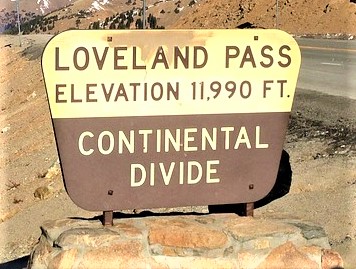 moving; not optimal for a road trip. The empty truck rattled with every bump. The wind howled around us. There was no point in playing music; we couldn’t hear it. Still, you can pack a lot of boxes in an empty van, so over the passes and through the woods we traveled, straight on to the Mile-High city.
moving; not optimal for a road trip. The empty truck rattled with every bump. The wind howled around us. There was no point in playing music; we couldn’t hear it. Still, you can pack a lot of boxes in an empty van, so over the passes and through the woods we traveled, straight on to the Mile-High city.
In the vintage Denver neighborhood of Capitol Hill we wedged the van into the only empty space for blocks, a zone clearly marked “no parking.” Fortunately, their twenty-something friends hustled all the heavy boxes out of the building and loaded us up in short order. We were ready for the road. In the midst of this somewhat-controlled chaos, I asked my son for directions since we would be leaving before they did.
I wish I had listened better. It wasn’t his fault. He and his wife had driven this route countless times. All we had to do was stay on the same road for 208 miles before making our first turn.
How Simple Can it Get?
And it could have been simple. After breaking free of the city, we climbed through almost total wilderness for about two hours, finally reaching the tiny  town of Fairplay. At around 10,000 feet in elevation, Fairplay lies atop a grassland basin in a windswept no-mans’ land. Once you leave town, there’s nothing for miles. No people. No cell service. No internet. No buildings. There aren’t even any trees. And unlike civilized areas, very few signs. We came upon what looked like a fork in the road. And for probably the first time in my hyper-vigilant life, I had missed the only sign.
town of Fairplay. At around 10,000 feet in elevation, Fairplay lies atop a grassland basin in a windswept no-mans’ land. Once you leave town, there’s nothing for miles. No people. No cell service. No internet. No buildings. There aren’t even any trees. And unlike civilized areas, very few signs. We came upon what looked like a fork in the road. And for probably the first time in my hyper-vigilant life, I had missed the only sign.
“Bear left,” I said confidently.
The Plan Goes South, Literally
Since I’ve been navigating our travels for forty years, Kevin just went ahead and turned left. Compulsively over-prepared and occasionally accused of ‘overthinking’ things, rarely have I pointed us in the wrong direction.
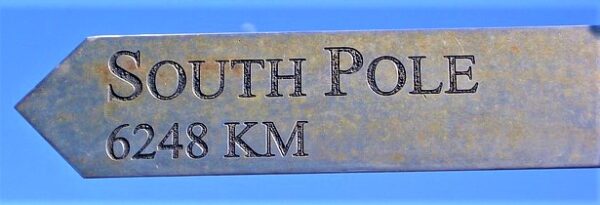
So we continued to cruise through the middle of nowhere for about twenty minutes, seeing only the occasional car.
Finally we saw a tiny blue sign that said, “9.” Just “9.” If only it had said, “Eventually you are going to end up in Colorado Springs, you nitwit”- that would have been helpful.
“Are you sure we’re going the right way?” Kevin asked.
“I don’t know what 9 means. Let me look.”
I reached into the glove box for a map.
“Where are your maps?'”
“This is my work truck. I don’t need any maps.”
They were all in our car, tucked safely away in our garage back home.
I fired up my phone and tried to pull up directions. No signal.
I tried to call my son. No service.
Meanwhile, the occasional tumbleweed somersaulted across the road ahead of us as the miles rolled by.
“Should we turn around?”
“I don’t know. What if we’re going in the right direction? It’s quite a ways back to Fairplay. Let’s keep going for a while. We’re bound to run into someone eventually. A gas station. Something.”
So we kept our eyes open for signs of civilization, possibly hidden in the tall grass that sways perpetually in the endless wind.
If We Only Had A Map
You know what maps do? They take the guesswork out of travel. One of the things I loved about the Evangelical life was the structure; it seemed like a map
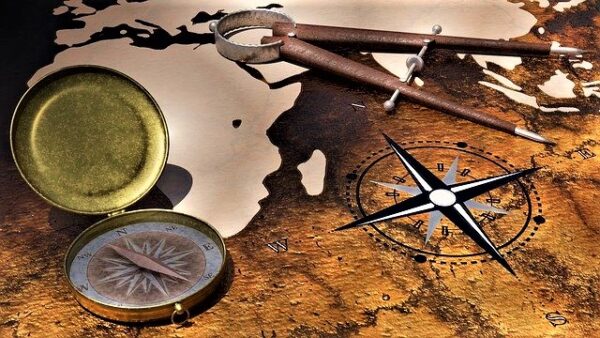
to wholeness. I was raised in chaos. My father was an abusive, bipolar alcoholic and my mother worked two jobs to support us all. There was no reliable structure to our lives. Each morning brought a fresh dread that kept us ever-vigilant. Over time, my brothers and I fell into patterns of self-destruction. Finding marijuana at fifteen actually saved my sanity for a few years. Predictably though, better living through anesthesia leads to addled living through addiction. And no one hates addiction more than the addict herself.
Addiction eventually dead-ends in hopelessness, no matter which map you follow.
By the grace of God and a miracle of His power, Jesus reached out to me through one of His kids. For seven years, she prayed. Occasionally she told me about her savior. Not often, not overbearingly, not threateningly, not shaming me. Just loving me. And one day, thirty-five years ago, I said yes.
The Healing Process Commenced
I fell into Jesus’ arms through the folks at an Evangelical Church. They taught me how to love the Bible. They taught me that I could trust God. And they did this by inviting me to join them in the living structure that is church: getting involved. Participating in Bible studies. Volunteering to serve others. Showing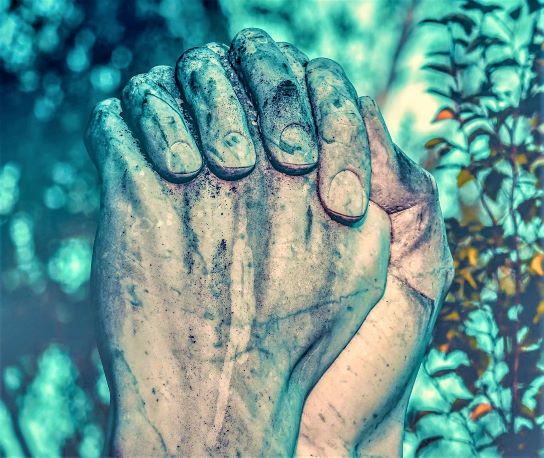 up on Sunday mornings. And on one of those Sundays, I heard the voice of God thunder through my chest telling me that this day, January 15, 1989, was the day He wanted me to get sober. He said that on this day, He would help me. And if I didn’t, He would have to get my attention.
up on Sunday mornings. And on one of those Sundays, I heard the voice of God thunder through my chest telling me that this day, January 15, 1989, was the day He wanted me to get sober. He said that on this day, He would help me. And if I didn’t, He would have to get my attention.
I may not have been sure of much, but I was dead-on certain that I did not want to force God to get my attention.
So I found an additional community of kind souls, and their road map for recovery was even clearer than the church’s opportunities for spiritual growth. Between the two of them, I started to get well. Life got better. And I learned how to live without the dread of abuse, without the need for hyper-vigilance, and without the soul-deadening anesthesia of drugs and alcohol.
I found freedom within the healthy boundaries of community; I found a roadmap for life. And it worked like gangbusters until November 8, 2016.
My Map Went Up in Flames
I’ve written quite a lot about that day. My own people, Evangelical Christians, voted Donald Trump into office. It’s been five years, and I think I’ve finally grasped the depth of my loss from that event. Rather than rehash the pain, I’ve begun to think about the path ahead. I’ve just been reacting to the loss. Now it’s time to proactively start charting a course for the future.
There’s only one problem. No map.
For someone who thrives on order and stability, drawing my own map is more than navigating uncharted territory. It’s calling me to trust myself, trust God, and believe that the journey towards my own healing is worth the effort.
That I am worth the effort.
That I will eventually find my way.
Long into the afternoon of moving day, Kevin and I came upon a log cabin/gas station/hunting supply store, all by itself in the middle of nowhere. With a smile (possibly a smirk), the proprietor pointed us toward Podunk Cutoff, saving us further embarrassment and even more miles headed in the wrong direction. When we finally arrived in Creede, our kids were relieved to see us, and even more relieved that we hadn’t absconded with their belongings.
As I search for new direction in this post-Evangelical world, I don’t have to be afraid of making mistakes. I do have to rely on the lessons I’ve already learned. I do have to continue to read the Gospels, pray, and trust God.
But I’ve got a big sketch pad, my tattered old Bible, an abundance of resources, a collection of colored markers,
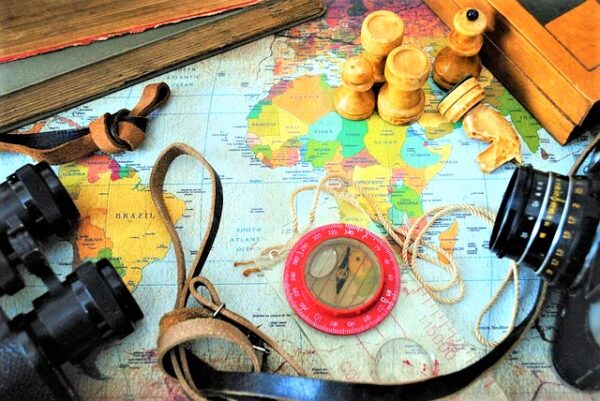 a handful of like-minded Ex-vangelical friends online, a database of organizations devoted to following the teachings of Jesus, a terrific family, an amazing Savior, a lot of faith, a soft heart, and the ability to write. I’m going to draw my own map.
a handful of like-minded Ex-vangelical friends online, a database of organizations devoted to following the teachings of Jesus, a terrific family, an amazing Savior, a lot of faith, a soft heart, and the ability to write. I’m going to draw my own map.
I invite you to come with me.
©Rachel Ophoff, Coconut Mountain Communications LLC, 2021. All Rights Reserved.
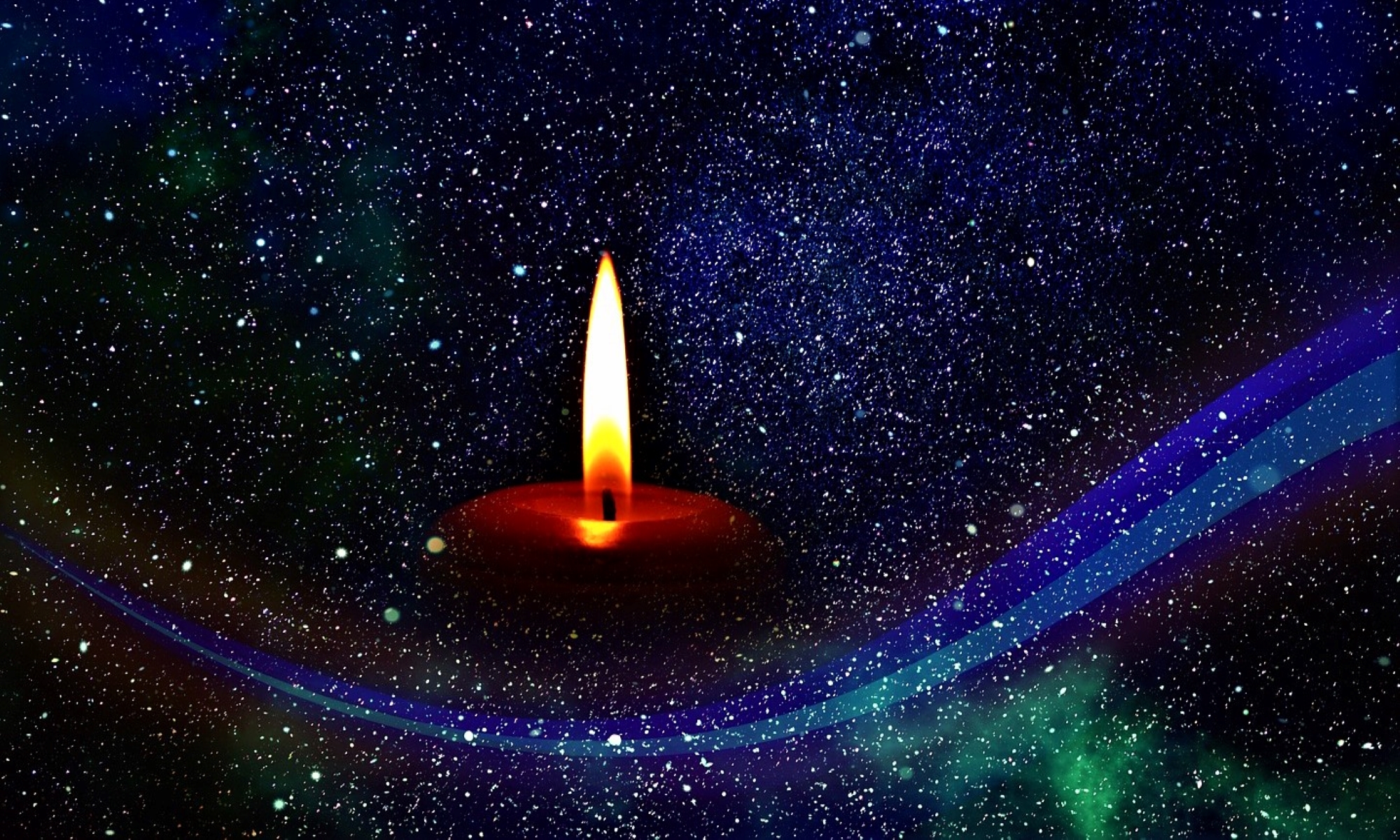
The after, the abundance of options for creating your own map, is such a sacred place to be.
We thought we found our church in 2012, a place where we felt embraced and accepted–especially in spite of our liberal politics. We even were installed in leadership because the Pastor wanted to encourage variety. But after the 2016 election, the sermons became more and more presented with the lacy veil of Christian nationalism. Even though they still acted welcoming, we grew more and more uncomfortable. After seven years we moved to another area of the country, hoping to find a more inclusive fellowship, and then Covid happened. I’m no longer sure I’ll return to an established body of believers, turned off by certain denominations, and absolutely in fear of another evangelical group. The church has become a fearful entity.
Awesome writing Rachel! I look forward to witnessing where God leads you.